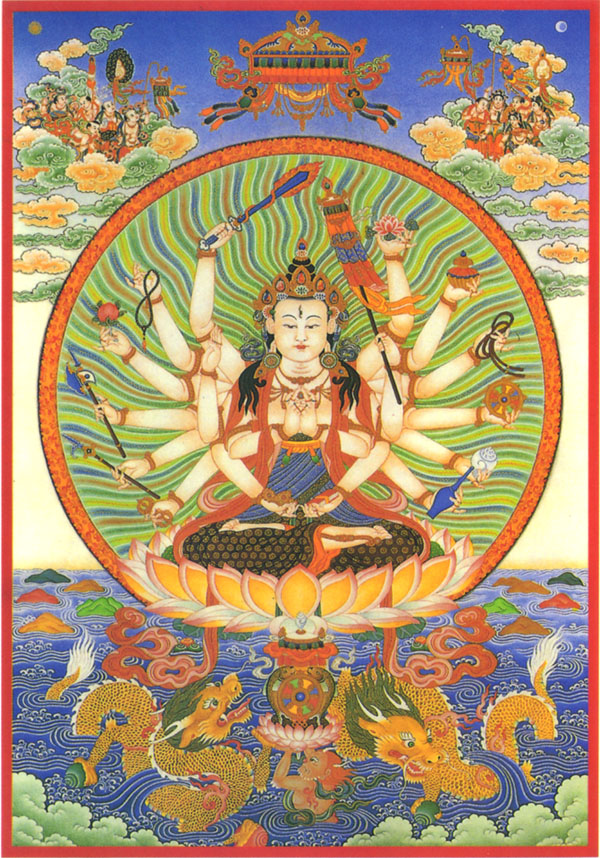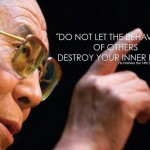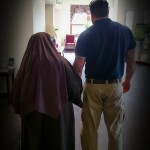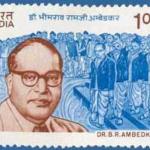Cottonwood puffs float over the lawn like tumbleweeds. The sun is beginning its descent and the temperature with it. I kick my feet back and forth and twiddle my thumbs like my great grandmother did, as I watch my daughter jump and splash in the pool. It feels like a commercial; all I need now is a Corona sitting on the arm of the chair as the camera pans out. Instead, the dog pants underneath my chair, and the baby birds in the bird box in my Buddha garden break into chorus as a parent bird—beak full—alights on the ledge and pokes its head in.
I look over to watch and smile as they chirp away, each calling for a mouthful of whatever tasty morsel the mom or dad caught. I cannot help but smile and think of the Buddha’s words, “Let us rise up and be thankful, for if we didn’t learn a lot today, at least we learned a little, and if we didn’t learn a little, at least we didn’t get sick, and if we got sick, at least we didn’t die; so, let us be thankful.”
As I get older these words travel to the forefront of my mind more often. I spend more time talking less and listening more and find it hard not to smile.
“Daddy, look at me!” Brynn’s words bring me back to her and I watch as she does her toddler boogie in the shallows of her pool. Her elbows furiously jutting back and forth as she wiggles her butt, crack exposed as her trunks are full of water, and laughs and giggles. “I dancing daddy, I dancing!” I smile at her and feel my heart lighten even more.
It is easy to get lost within the suffering of the world when we are involved in social services. We see and hear things that seem to stack, never endingly, upon our backs. We see this child hurt, that child overdosed, the wife hospitalized, and the calls and sights that we never forget; the sights that wake us up at night, heart racing, fists clenched into the sheets and mind reeling from being exposed to things that make us feel like we have no hope.
Yet, here it is: the light that breaks into the shadows and shows us that there is always reason for hope, belief, struggle and unceasing love and compassion on even the seemingly lost. This is the hope of the Bodhisattva vow, to release all beings, great and small, from the cycle of suffering and neglect.
On the whole of it, it is an impossible task. We are but one small being in a world of billions of living people and animals. I think the bodhisattva vow means more than this though—more than the idea that we can reach enlightenment and liberate beings. Even the Buddha said that no one can remove the stains of another. What we can do, is offer hope. We can at least try to offer a reason for someone else to smile in the face of overwhelming odds.
This smile may not seem like much. It may seem to us and to most as an insignificant act, but to that one person—the one person who needed a reason to feel hope, to smile, to feel the setting sun on their face for just the briefest of moments—it may have sparked a revolution in their lives and in their thinking.
This one simple act may snowball into an avalanche of cause and effect that eventually touches the lives of thousands such as the donation that fed a small child in Ethiopia, who grew up to become a doctor because he had that single meal that kept him going for a little while longer. Or the man on the street we meet eyes with and smile deeply at who goes home and puts the gun away that he was going to end his life with and becomes a volunteer at a suicide hotline.
These examples may seem far fetched but they are not as uncommon as you think.
I remember the day I opened an email that said, “Ty, you probably don’t remember me but when I was a kid, you said something to my father about how we treat children. Up until this point, he was a drinker and an abuser. It didn’t change overnight, but it did change. Years later, when we asked him about it, he mentioned you and what you said. In many ways, you saved our lives and I wanted you to know, that one conversation you had with our father, changed our lives. Thank you so much. We will never be able to repay you.”
I sat there with that email for maybe a half an hour. Tears ran down my face uncontrollably, because at that very moment, I needed a hope to keep pushing forward.
This may be an unconventional view of the vow, and like many of my views on classical understandings of Buddhist ethics and teachings, it may raise the ire in traditionalists. That’s okay though. I know that somewhere, someone may read this and my concept of the vow may be fulfilled again.
picture: (source)













